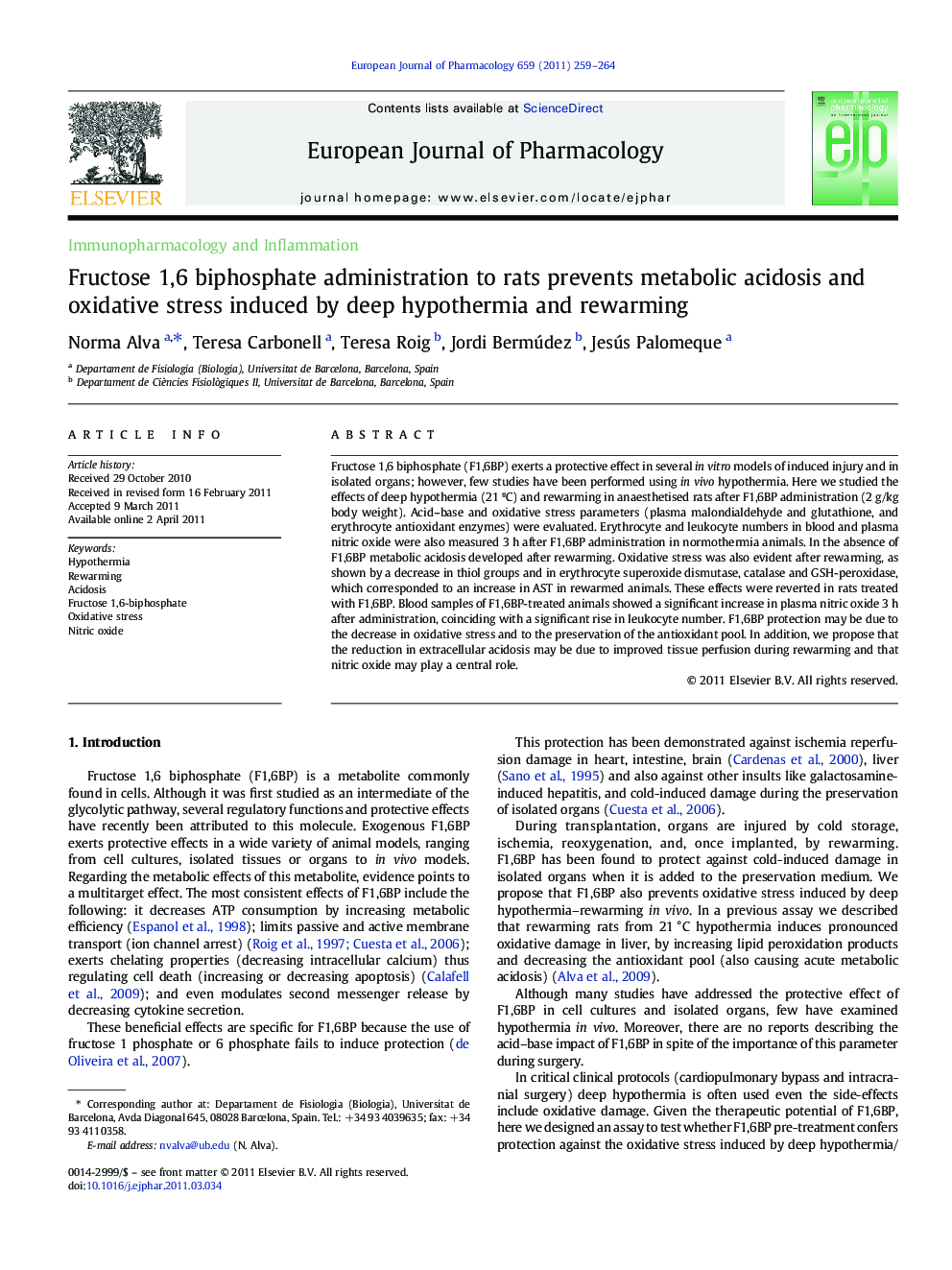| Article ID | Journal | Published Year | Pages | File Type |
|---|---|---|---|---|
| 2532859 | European Journal of Pharmacology | 2011 | 6 Pages |
Fructose 1,6 biphosphate (F1,6BP) exerts a protective effect in several in vitro models of induced injury and in isolated organs; however, few studies have been performed using in vivo hypothermia. Here we studied the effects of deep hypothermia (21 ºC) and rewarming in anaesthetised rats after F1,6BP administration (2 g/kg body weight). Acid–base and oxidative stress parameters (plasma malondialdehyde and glutathione, and erythrocyte antioxidant enzymes) were evaluated. Erythrocyte and leukocyte numbers in blood and plasma nitric oxide were also measured 3 h after F1,6BP administration in normothermia animals. In the absence of F1,6BP metabolic acidosis developed after rewarming. Oxidative stress was also evident after rewarming, as shown by a decrease in thiol groups and in erythrocyte superoxide dismutase, catalase and GSH-peroxidase, which corresponded to an increase in AST in rewarmed animals. These effects were reverted in rats treated with F1,6BP. Blood samples of F1,6BP-treated animals showed a significant increase in plasma nitric oxide 3 h after administration, coinciding with a significant rise in leukocyte number. F1,6BP protection may be due to the decrease in oxidative stress and to the preservation of the antioxidant pool. In addition, we propose that the reduction in extracellular acidosis may be due to improved tissue perfusion during rewarming and that nitric oxide may play a central role.
